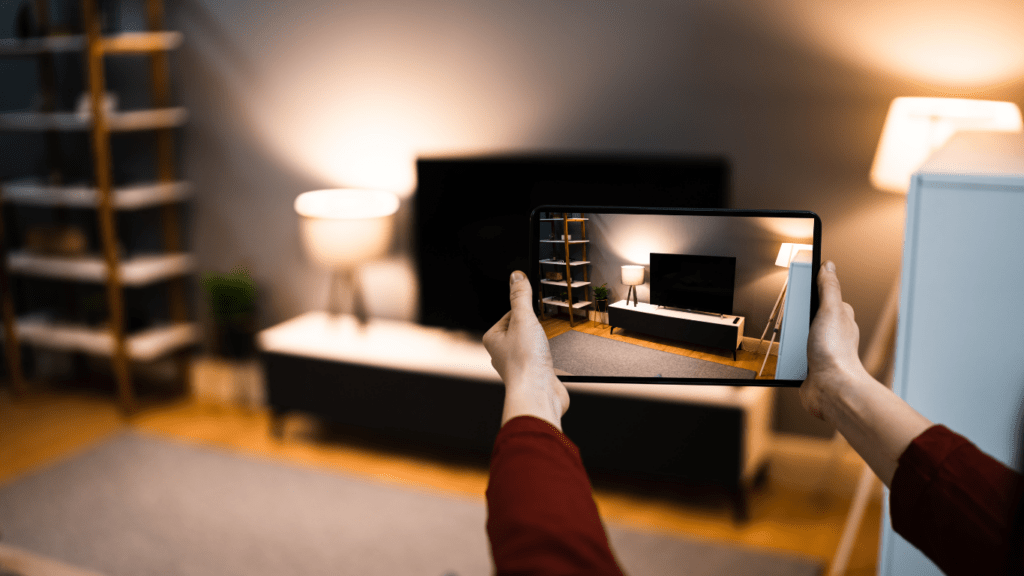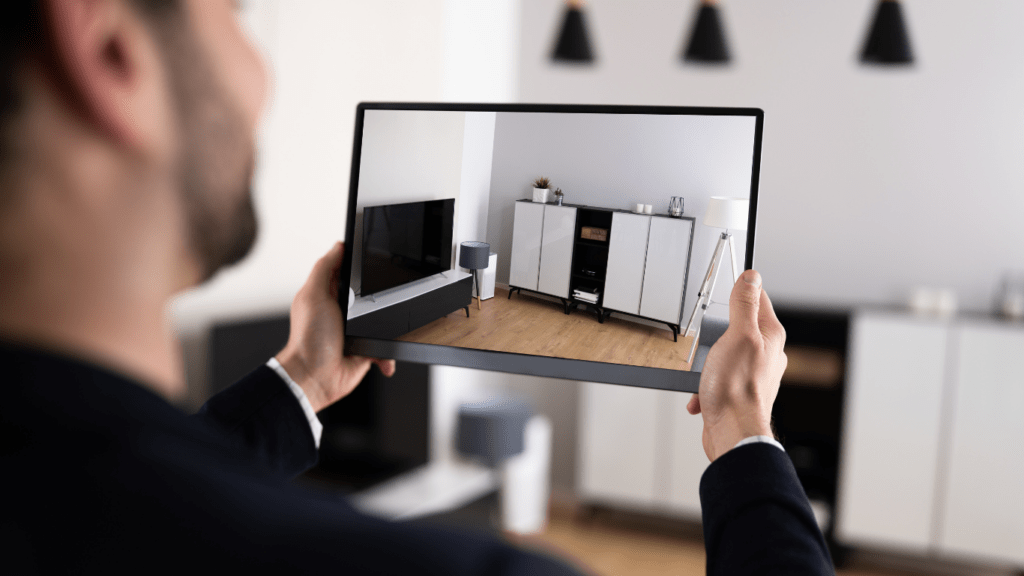What Are Virtual Tours?
Virtual tours offer homebuyers an immersive way to view properties remotely. These digital tools replicate the experience of physically walking through a home using interactive technology.
Definition And Types
Virtual tours include 360-degree video, 3D walkthroughs, and live guided tours.
- 360-Degree Video: Displays panoramic views of a property, allowing users to look around by dragging the screen.
- 3D Walkthroughs: Interactive experiences where users click to “walk” around and explore rooms in detail using software like Matterport.
- Live Guided Tours: Hosts, like real estate agents, share the property through video calls, offering real-time interaction and detailed explanations.
Each type suits varying needs, from self-guided exploration to agent-assisted insights.
Evolution Of Virtual Tours In Real Estate
Virtual tours have grown from simple slideshow images to immersive 3D experiences. In the early 2000s, property views consisted of static photo galleries. By the 2010s, advancements like 360-degree cameras and VR software revolutionized the viewer experience.
Today, platforms like Zillow and Redfin integrate intuitive tools for seamless home exploration. The COVID-19 pandemic accelerated demand for contactless property viewing, pushing widespread adoption among real estate professionals and homebuyers alike.
Benefits Of Virtual Tours For Homebuyers

Virtual tours redefine how homebuyers interact with properties by offering unparalleled convenience and accessibility. These immersive experiences enhance decision-making and expand market opportunities.
Convenience And Time-Saving
Virtual tours save homebuyers significant time in property viewing. Instead of traveling to multiple locations, I can evaluate various properties from my home in minutes. Platforms like Matterport and Zillow streamline the process by providing detailed 3D explorations, reducing the need for in-person visits. Scheduling flexibility allows me to view properties anytime, eliminating constraints tied to typical business hours.
Enhanced Visualization Of Properties
High-definition virtual tours offer detailed and accurate representations of homes. I can explore every room, inspect finishes, and assess layouts through 360-degree visuals. Features like zoom functions let me focus on specific details, such as cabinetry or flooring. If I need comparisons, platforms like Redfin provide side-by-side property views using advanced rendering technologies.
Access To Global Markets
Virtual tours remove geographical barriers in real estate. I can explore homes in different cities or countries without leaving my current location. Real estate agencies leverage tools like VR environments and live remote tours to connect buyers with properties worldwide. This access is especially crucial for international buyers or those relocating for work, enabling broader opportunities in competitive markets.
Impact On The Real Estate Industry
Virtual tours are reshaping how the real estate industry operates, shifting the way properties are marketed and transactions are conducted. Their growing presence brings transformative effects to homebuying and realtor strategies.
Changing The Homebuying Process
Virtual tours have significantly altered the traditional homebuying experience. Buyers now prioritize properties offering virtual walkthroughs, as they enable initial property evaluations remotely. This reduces in-person visits while still offering comprehensive visual insights. By providing access to detailed, interactive property views, virtual tours empower buyers to make more informed choices in less time.
Increased Competition Among Realtors
The rise of virtual tours has intensified competition among realtors. Listings with immersive virtual experiences tend to attract more engagement, prompting agents to invest in high-quality technology. Failure to offer virtual tours often leads to reduced interest from potential buyers. Realtors who embrace virtual platforms gain a competitive edge, as these tools differentiate them in a crowded market.
Integration Of Technology In Real Estate
The adoption of virtual tours drives deeper integration of technology in real estate. Advanced tools, such as artificial intelligence and augmented reality, enhance virtual viewing experiences, enabling features like virtual staging. Real estate platforms now incorporate analytics to track user interactions with tours, providing actionable insights for marketing strategies. This tech-forward approach reflects a broader industry trend towards digitization.
Challenges And Limitations
Virtual tours, while innovative, face several challenges that limit their effectiveness in certain scenarios. These constraints impact both homebuyers and real estate professionals, creating gaps in the otherwise seamless experience.
Technology Barriers For Some Users
Access to virtual tours may be hindered by technical limitations. High-speed internet, modern devices, and familiarity with virtual platforms are essential to engage with 3D or 360-degree tours effectively. Not all users, especially in rural areas or older demographics, possess the technical infrastructure or knowledge needed. This digital divide restricts inclusivity and may leave potential buyers dependent on traditional methods.
Lack Of Physical Interaction With The Property
Virtual tours cannot replicate the tactile and sensory experience of visiting a home in person. Buyers miss critical elements like feeling the texture of materials, assessing noise levels, or perceiving natural light throughout the day. For those prioritizing these nuances, virtual tours fall short, requiring follow-up in-person visits, which negates some of the time-saving benefits.
Potential For Misrepresentation
Virtual tours may oversell properties if editing or staging is used excessively. Wide-angle lenses, enhanced lighting, and digital touch-ups can create unrealistic expectations. Homebuyers might find disparities between the virtual presentation and the physical property, leading to distrust. Transparency becomes critical, and any misleading representation risks damaging realtor credibility.




